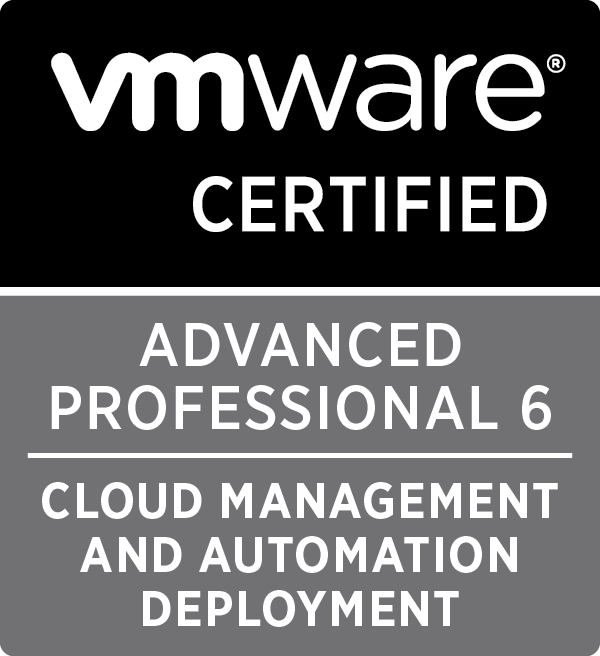Category : VMware

Written by Christopher Lewis on January 27, 2017 .
This post is a part of a series of posts for preparation for the VCAP6-CMA Deploy exam. In this quick post we will walkthrough how to deploy the VMware vRealize Automation 6.x IaaS DEM Workers.

Written by Christopher Lewis on January 26, 2017 .
This post is a part of a series of posts for preparation for the VCAP6-CMA Deploy exam. In this quick post we will walkthrough how to deploy the VMware vRealize Automation 6.x IaaS Manager Servers.

Written by Christopher Lewis on January 25, 2017 .
This post is a part of a series of posts for preparation for the VCAP6-CMA Deploy exam. In this quick post we will walkthrough how to deploy the VMware vRealize Automation 6.x IaaS Web Servers.

Written by Christopher Lewis on January 25, 2017 .
This post is a part of a series of posts for preparation for the VCAP6-CMA Deploy exam. In this quick post we will walkthrough how to deploy the VMware vRealize Automation 6.x IaaS Database.

Written by Christopher Lewis on January 25, 2017 .
In this post we cover the VCAP6-CMA Deploy - Objective 1.2: Deploy and Manage vRA Appliances and IaaS Servers in a Distributed Configuration

Written by Christopher Lewis on January 24, 2017 .
This post is a part of a series of posts for preparation for the VCAP6-CMA Deploy exam. In this quick post we will walkthrough how to obtain the vRealize Automation 6.x IaaS Installer Packages

Written by Christopher Lewis on January 24, 2017 .
This post is a part of a series of posts for preparation for the VCAP6-CMA Deploy exam. In this quick post we will walkthrough how to configure the VMware vRealize Automation 6.x appliances.

Written by Christopher Lewis on January 21, 2017 .
This post is a part of a series of posts for preparation for the VCAP6-CMA Deploy exam. In this quick post we will walkthrough how create a linked-clone blueprint.

Written by Christopher Lewis on January 17, 2017 .
In this post we cover the VCAP6-CMA Deploy - Objective 1.5: Create Fabric Groups utilizing Reservations and Reservation Policies

Written by Christopher Lewis on January 16, 2017 .
In this post we cover the VCAP6-CMA Deploy - Objective 2.2: Create/Modify a Business Group
